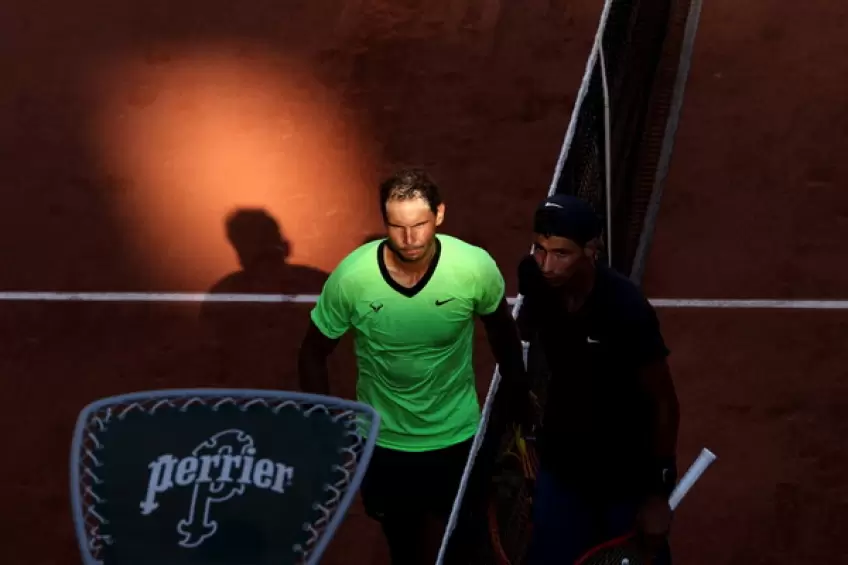
Seeking the 101st Roland Garros victory, Rafael Nadal ousted Alexei Popyrin 6-3, 6-2, 7-6 in two hours and 23 minutes on Tuesday. Nadal defeated Popyrin in Madrid a few weeks before and had to work hard in Paris in the third set, overcoming a 5-2 deficit and two set points to seal the deal and move over the top in straight sets.
Alex Corretja believes it was good for Rafa to play one tight set right in the opening match, raising his level after that seventh game and producing aggressive tennis that carried him towards the comeback and over the top.
Determined to control the pace, Alexei had more winners than Rafa and more unforced mistakes, unable to follow Nadal's numbers in the more extended exchanges and suffering four breaks from 11 chances given to the Spaniard.
Alexei failed to stay in touch with Rafa in the opening two sets, struggling to deal with the rival's spins and impose his strokes without making too many mistakes. Determined to show his skills, Alexei found a boost behind the initial shot in the third set and broke Rafa to open a 5-2 gap, looking good to prolong the encounter and stay on the court for at least one more set.
Alex Corretja said it was good for Rafael Nadal to play one tight set versus Popyrin.
Serving at 5-3, Alexei earned two set points and wasted both after disastrous errors, allowing Rafa to pull the break back and gain momentum.
The Spaniard created four break chances at 5-5 but failed to convert any, as Popyrin fended them off to force a tie break. Nadal opened a 4-1 gap following Popyrin's mistakes, fired a forehand winner to move 6-1 in front and clinched the third match point with another powerful forehand that forced Alexei's mistake.
"In a way, I think it's been very positive for Rafa to play a more challenging third set after an easy job in the opening two. Rafa was forced to react at 2-5 in the third; he produced more aggressive and solid shots and used his experience to turn the tables.
When you are down against a young gun, it's always difficult to win the set; Rafa did that perfectly. Nadal's balls bounce so high, and it's not easy for players like Popyrin to control them; that's why he made so many errors while trying to stay aggressive," Alex Corretja said.
